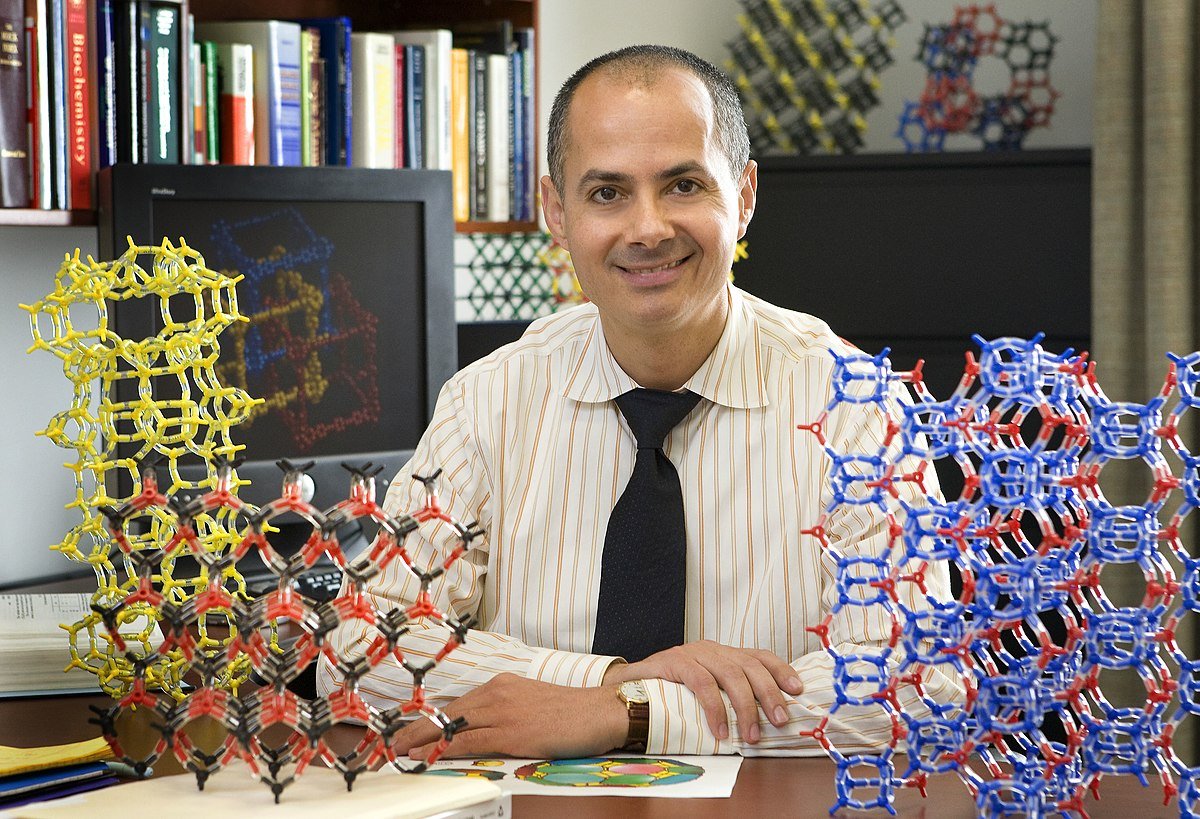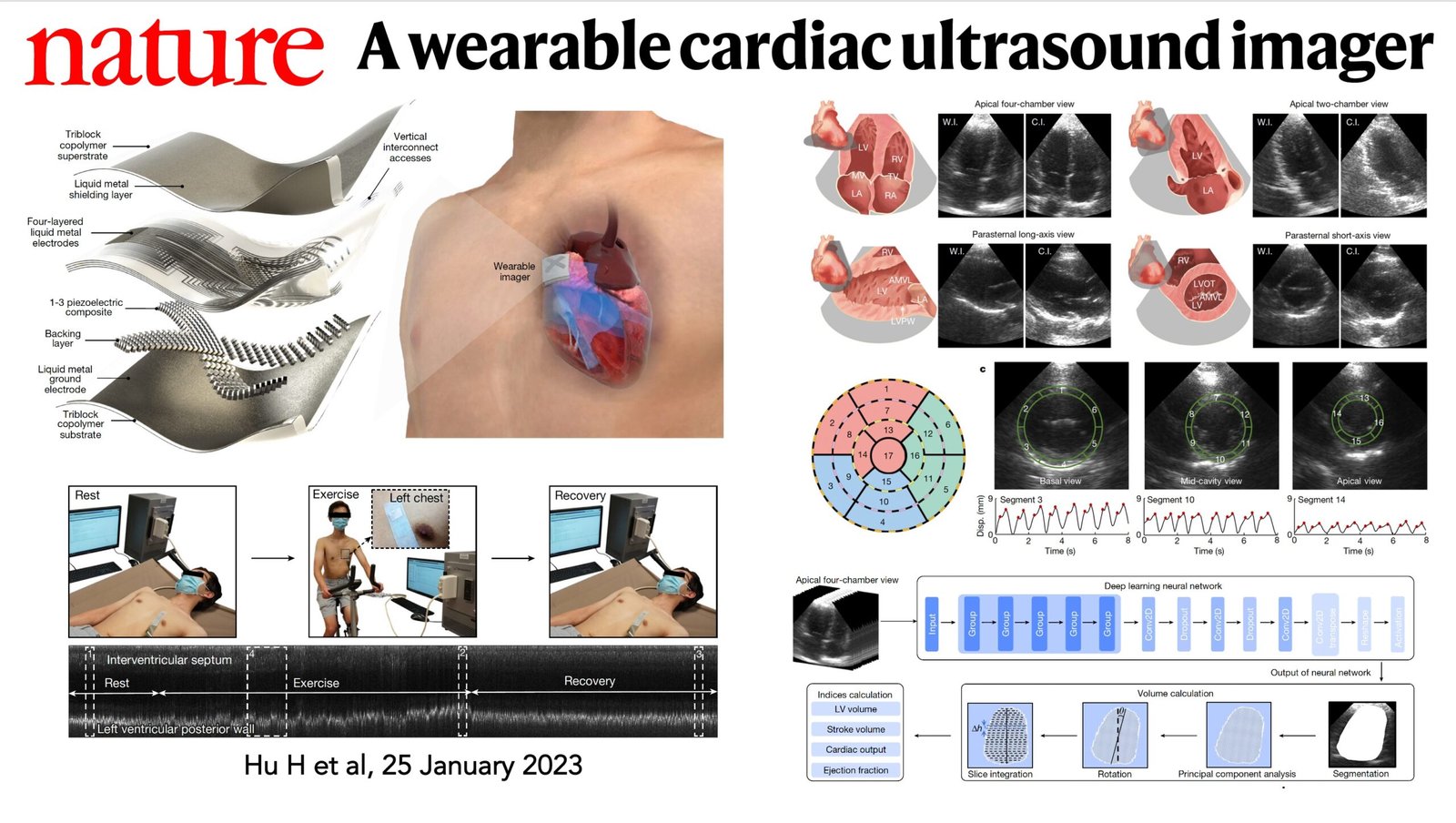By: Husam Yaghi
As Saudi Arabia strides towards its ambitious 2030 Vision, a powerful synergy emerges: metal-organic frameworks (MOFs) and artificial intelligence (AI). These intricate technologies, woven from cutting-edge science and innovative algorithms, are revolutionizing personalized medicine in the Kingdom. With its numerous initiatives, the Kingdom will create MOF-powered diagnostic tools which seamlessly integrate with AI algorithms to analyze biodata and unlock a patient’s unique health blueprint. Then, personalized drug therapies, tailored to individual genetic profiles and optimized by AI models, manufactured within the Kingdom, will boost local pharmaceutical production and medical tourism.
This isn’t a futuristic dream; it’s actively unfolding in Saudi research labs, like KAUST’s Center for Materials Science and Catalysis, where scientists are pioneering the integration of MOFs and AI for advanced disease diagnosis and treatment.

Precision Medicine Powered by AI:
Soon sci-fi will become a reality: MOFs will act like microscopic delivery drones, guided by AI-powered maps of your body’s terrain. These MOFs, carrying personalized payloads designed by AI algorithms, navigate your biology with laser precision, targeting diseased cells like skilled assassins. They’re more than just delivery boys; they’re miniature chemists, synthesizing life-saving molecules like insulin for diabetics or crafting designer enzymes to mend damage at the cellular level, all guided by the intricate calculations of AI models. Get ready for MOF biosensors whispering the secrets of diseases in their infancy, their signals analyzed and interpreted by AI in real-time to predict and prevent illness before symptoms even flicker.
Early Detection and Tailored Treatments:
The power of MOFs and AI extends beyond therapy. These intricate structures act as molecular sleuths, detecting miniscule disease markers with unmatched accuracy. A simple swab adorned with these microscopic detectives, coupled with AI-powered analysis, can whisper the secrets of cancer in its earliest stages or predict diabetes long before symptoms appear. This early detection is a game-changer, opening doors to personalized preventive measures and proactive treatment strategies. But the most transformative power lies in their ability to personalize medicine. Their selective affinities, optimized by AI models, enable the creation of bespoke drug and gene therapies, akin to designer suits stitched to your unique genetic code. Imagine cancer treatments tailored to your vulnerabilities, not just by type, but by the specific mutations driving your tumor, or gene editing with the finesse of a master sculptor, guided by the precision of AI. This customized approach empowers patients and clinicians alike, unlocking a future where healthcare becomes deeply personal, tailored to the symphony of your unique biology.
Beyond Cancer:
While cancer research dominates, MOFs and AI hold immense potential for other diseases. Imagine them navigating the blood-brain barrier to tackle neurological disorders like Alzheimer‘s or Parkinson’s with pinpoint precision, guided by AI maps of the brain’s intricate pathways. Envision them deciphering the complex triggers of autoimmune diseases like rheumatoid arthritis or lupus, allowing for targeted therapies that minimize side effects, optimized by AI models to maximize efficacy. The fight against antibiotic resistance could be bolstered by MOFs trapping drug-resistant bacteria, while AI algorithms design new antimicrobial strategies to stay ahead of evolving threats.
Steering the MOF and AI Revolution in Healthcare:
Saudi Arabia isn’t just keeping pace with the MOF and AI revolutions in healthcare; it’s actively steering them. Fueled by ambitious initiatives like the National Transformation Program and strategic collaborations with global leaders like UC Berkeley, the Kingdom is swiftly establishing itself as a frontrunner in this transformative field. Scientists at KAUST and other Saudi institutions are not just replicating; they’re innovating, actively designing and testing MOFs and AI algorithms for cutting-edge medical applications.
This commitment to scientific progress extends beyond mere funding. Recognizing the importance of human capital, Saudi Arabia has revamped its citizenship guidelines to attract the world’s brightest minds. One such example is Dr. Omar Yaghi, a pioneering MOF researcher from UC Berkeley. His invaluable contributions to the field earned him one of the first Saudi citizenships granted under the new guidelines, a powerful testament to the Kingdom’s dedication to nurturing scientific excellence.
This proactive approach is already yielding promising results. Saudi labs are buzzing with MOF and AI research, unlocking the potential of these technologies to personalize medicine and revolutionize healthcare. From early disease detection to bespoke drug therapies, the future of medicine is being shaped right here, in the heart of Saudi Arabia.
Join the Chorus:
Sparking a Collective Passion for Personalized Medicine: As MOF-AI research explodes, expect even more mind-bending possibilities to emerge. Imagine biocompatible MOF implants seamlessly integrating with your body, whispering real-time health updates, analyzed by AI in real-time, to guide personalized interventions. Miniature MOF sensors could dance through your bloodstream, mapping your inner terrain with unparalleled precision, their data interpreted by AI models to create a dynamic map of your health.
So, the next time you hear whispers of innovative technologies, remember the names: MOFs and AI. They are not just scribblings in a scientist’s notebook or lines of code in a programmer’s keyboard; they are the rising stars of biotechnology, poised to rewrite the script of healthcare and usher in a future where personalized, precise, and effective medicine becomes the norm.
A Revolution in HealthTech:
This transformative journey with MOFs and AI invites not just scientists and investors, but every one of us. To fully realize the potential of this powerful convergence, fostering a collective passion for personalized medicine is crucial. Let’s spark our curiosity about these microscopic marvels and intelligent algorithms. Read articles, ask questions, share the wonder. By igniting a collective passion for MOF-AI medicine, we fuel the fire of innovation and pave the way for a future where personalized medicine touches every life. Where intricately woven MOFs, like microscopic maestros, conduct your health symphony, guiding personalized drug payloads directly to diseased cells. AI, the master composer, analyzes your genetic score, composing a treatment concerto tailored to your vulnerabilities, note by precise note. Early detection becomes a chorus, sung by MOF biosensors whispering the first tremors of illness before symptoms even flicker.

This is not a distant melody; it’s the harmony of the future, where healthcare becomes a deeply personal masterpiece, composed just for you. So, close your eyes, listen to the rhythm of your own biology, and let the transformative power of MOFs and AI orchestrate a healthier, happier you. The future of medicine is not a solo act; it’s a symphony waiting to be played, together.
Together, we can ensure that the transformative potential of MOFs and AI isn’t just another chapter in a scientific textbook, but a revolution that empowers everyone to take control of their own health and unlock a future of personalized, precise, and effective medicine.

Not Your Grandpa’s Chemistry:
Confess: when you hear “MOFs,” does your mind conjure up some obscure chemical concoction fit for a dusty textbook? Don’t feel bad, even an electrical engineer and computer whiz like me once thought the same. But hold on, because MOFs deserve a starring role in the spotlight, not a relegation to the science shelf.
Prepare to be amazed. Imagine Lego bricks, not for kids, but for scientists. These super-tiny bricks, each smaller than a hair, snap together to form intricate cages called metal-organic frameworks (MOFs). But these aren’t your ordinary Lego playthings. These cages boast superpowers – their pockets, countless and microscopic, can store some seriously cool stuff.
Air Cleaners on Steroids: Tired of city smog clouding your lungs? MOFs come to the rescue, acting as giant air filters that gobble up nasty gases like carbon dioxide, leaving you breathing fresh, mountain-worthy air. Think cleaner cities, healthier lives, and a happier planet – all thanks to these microscopic air detectives.
Salty Water? No Problem: Thirsty for a solution to water scarcity? MOFs, working their magic like fancy sieves, let clean water flow through their pockets while leaving the salt behind. This means turning salty seawater into crystal-clear drinking water, a game-changer for thirsty regions. Imagine desert blooms and happy faces – all thanks to these water wizards.
Medicine Delivery, Miniaturized: Forget needles and side effects. MOFs transform into tiny delivery trucks, carrying powerful drugs directly to sick cells. Picture them as targeted missiles, taking out the bad guys (disease) while leaving the good guys (healthy cells) unharmed. Who needs superheroes when you have mini Lego medics zipping around your body?
But the MOF magic doesn’t stop there. Scientists are constantly inventing new ways to use these microscopic marvels:
- Sunlight Storage: Imagine MOFs as tiny solar panels, trapping sunlight and transforming it into clean energy. Power your home with sunshine, all thanks to these Lego light traps!
- Explosive Sniffers: No more bomb scares! MOFs, trained like microscopic K-9 units, can sniff out dangerous chemicals and explosives, keeping us safe from harm. Think of them as super-sensitive noses glued to danger.
- Legolicious Materials: Ditch the heavy metals and flimsy plastics. MOFs can be the building blocks of super-strong, super-light materials, from airplanes that soar like birds to phones that feel like feathers in your hand. Imagine a future where Lego rules the materials world!
Next time you admire a shimmering city skyline or quench your thirst with a refreshing glass of water, remember the hidden heroes working their magic at the nanoscale. These Lego-inspired MOFs are silently revolutionizing the world, one tiny pocket at a time. And who knows, maybe one day they’ll help us build a future as awe-inspiring as their microscopic wonder.

MOFs to Power Wearables
Forget chunky wristbands and scratchy straps – the future of wearables is microscopic and mighty. Enter metal-organic frameworks, or MOFs, tiny structures with superpowers that are revolutionizing personalized healthcare. Think of them as Lego® blocks for scientists, building miniature chemical factories embedded right into your wearable. These microscopic marvels unlock a treasure trove of possibilities:
1. Body Detectives: Imagine your wearable whispering health secrets in your ear. MOFs act as miniature sensors, constantly scanning your sweat, tears, or even breath for specific biomarkers like glucose or stress hormones. This real-time intel empowers you to understand your body and take preemptive steps towards a healthier you.
2. Safety First: Unlike some finicky tech, MOFs are team players. They can be customized to be biocompatible, reducing irritation and playing nice with your body. Plus, their adjustable structure allows for precise control over drug interactions and release, keeping you safe while you reap the benefits.
3. Beyond the Basics: The MOF magic doesn’t stop there. Imagine wearables equipped with tiny MOF-powered labs, performing on-demand biochemical reactions right on your skin. This could pave the way for real-time diagnostics or even personalized production of therapeutic compounds. And who doesn’t want a wearable that doubles as a mini lab?
4. Comfort is King: Ditch the bulky bands and uncomfortable straps. MOFs can be woven into flexible fabrics, making wearables as gentle as a whisper on your skin. Their porous nature even helps your skin breathe and stay cool, making you forget you’re wearing anything at all.

While MOFs are still in their early days, their potential in wearables is undeniable. These microscopic marvels are poised to transform the way we monitor and manage our health, ushering in an era of personalized, proactive healthcare.
Disclaimer: “This blog post was researched and written with the assistance of artificial intelligence tools.”


